Metallic, not grunge. That is the thought I wakened one morning in Might 2017, a couple of days after Chris Cornell’s unhappy and surprising demise in Detroit.
Metallic, not grunge.
After I travelled to Seattle at the beginning of 1989 to cowl an entire slew of unkempt, unruly, long-haired bands releasing information – colored vinyl and the odd 12-inch – on native label Sub Pop, Soundgarden had been already a breed aside. The band had been signed to 3 labels – SST, Sub Pop and main label A&M – and had been making appreciable inroads into the music trade. I met them as a matter after all alongside their extra brattish friends – Nirvana, Mudhoney, the man-behemoth Tad, and so forth – and already, it appeared, there was confusion over what the precise sound of Seattle was.
Soundgarden had not shaped in a single day (the band began in 1984), and so they performed unrequited metallic – albeit metallic melded with deranged humour on their debut 1988 album Ultramega OK. And even then, with the psychedelic metallic pulse of their early albums, and the mighty agitation of Palms All Over from 1989’s turbulent, genre-reinventing Louder Than Love, they appeared extra severe in some way, extra targeted.
Blues, not punk.
Perhaps it was Chris Cornell’s voice – otherworldly and near-feminine in its larger register, a power of nature, a freakstorm not heard because the early days of metallic within the Nineteen Seventies. Perhaps it was Kim Thayil’s guitar, churning and breaking and sprawling in every single place… or Matt Cameron’s drumming (it’s far simpler to wreck a band with a nasty drummer than with some other instrument)… or the thunderous bass of Hiro Yamamoto (later to get replaced by Jason Everman, and him by Ben Shepherd).
Actually the band already forged an extended shadow over the nascent Seattle scene – grunge or no grunge. Their music, their cool, no-fucking-dickheads angle to gender points and day-to-day residing, their mountainous energy… all of those had been main influences on the newer bands. The band’s early slogan, Whole Fucking Godhead, was no empty promise. Nirvana, specifically, went by way of a interval of desirous to be Soundgarden Mk.II – they shared two bassists (Everman and Shepherd, a former Nirvana roadie) and a producer (Jack Endino), and their debut album, Bleach, was in locations Soundgarden lite.
Soundgarden had been inexorably entwined with Sub Pop’s early years: it was on Kim Thayil’s recommendation that his buddy Jonathan Poneman contacted Olympia fanzine author Bruce Pavitt with the concept of forming the label. Drummer Matt Cameron got here from Endino’s band Pores and skin Yard.
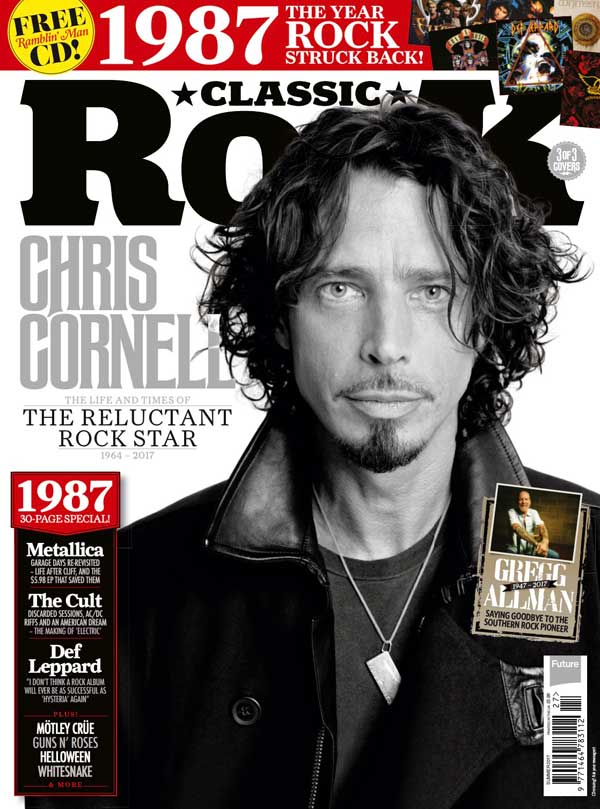
I can’t recall once I first met Soundgarden – presumably it was within the Sub Pop places of work on the tenth flooring of the Terminal Gross sales Constructing on 1st, with the framed Matt Groening cartoon on Bruce Pavitt’s workplace wall, or possibly it was within the first Starbucks down in Pike Place Market, the place half the Sub Pop roster labored. Everybody hung round with everybody else again then.
Undeniably, nevertheless, Cornell had the makings of a star. It wasn’t simply the way in which he’d rip his shirt off at a second’s discover, revealing rippling biceps. He possessed a stardust that I’ve solely ever noticed in a single different star: Björk.
A few of Soundgarden’s contemporaries had been bothered by the notion of rock stardom, of taking the Jesus Christ pose. This notion by no means bothered Cornell. There was one thing about the way in which he carried himself, his informal brilliance. It wasn’t that he was stand-offish. Removed from it. Simply that he fairly clearly was going to shine. (I by no means made the identical statement about Cobain or any of his friends, and even now generally discover myself stunned at how well-known that individual relocated Seattle resident turned.)
There was a near-legendary Soundgarden present in London, presumably their first, a double headliner with Mudhoney (supported by forgotten hardcore band Murphy’s Regulation), the place the makeshift stage collapsed and an entire bunch of us needed to kind a human chain, dragging the trestle tables backstage and hurling them into an empty room earlier than anybody obtained crushed. After the chaos, Soundgarden ended their set with Cornell asserting: “We’re Black Sabbath. Good evening.”
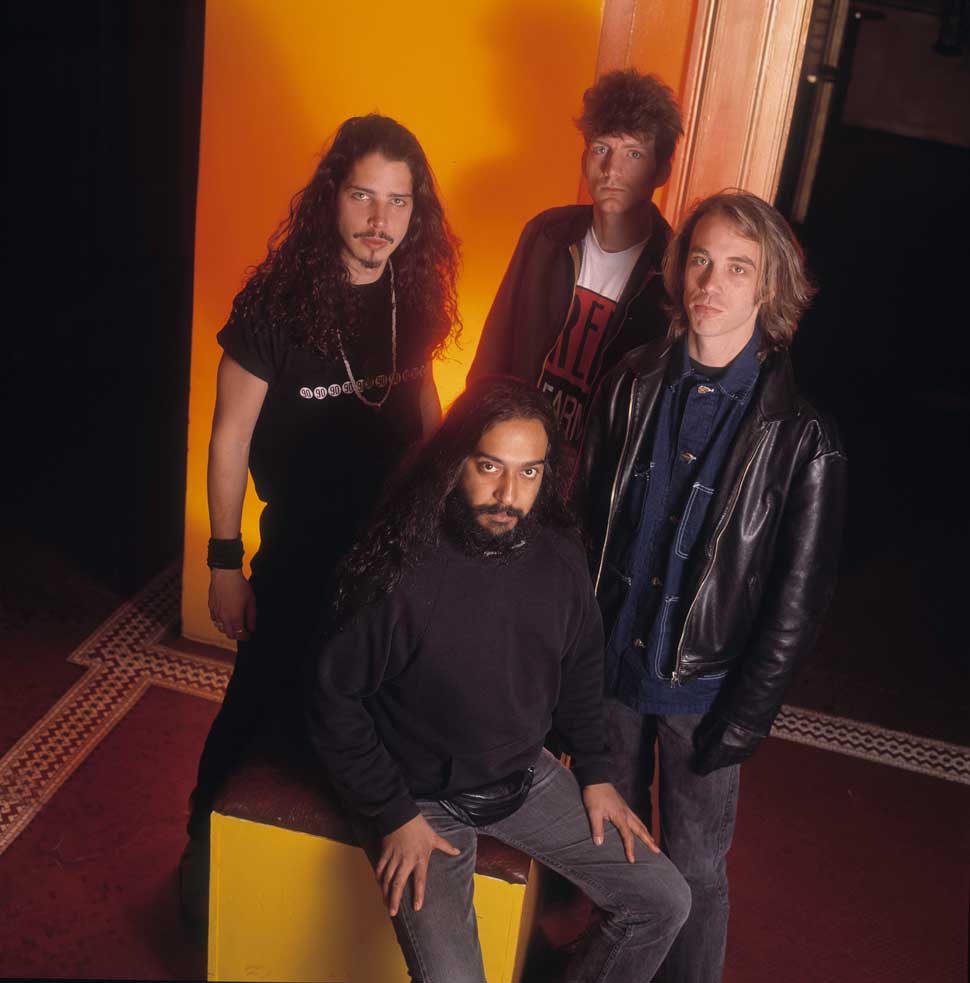
The band, in the meantime, had turn out to be taken with my willingness to plant myself firmly within the motion, grappling drunkenly up on stage to hurl insults down the microphone on the viewers, and ‘sing’ a couple of improvised songs. After I caught up with the group a couple of months later (earlier? All the pieces was so confused again then), within the Dutch squat/venue the Vera Groningen, Cornell dragged me up on stage to duet with him on a truncated model of Some Enchanted Night (from the Hollywood musical South Pacific), earlier than the band roadie rugby tackled me into the wings. The set that evening in Holland, 1989, was incendiary.
To this Chelmsford boy who had grown up studying the UK music press on the time of post-punk and had been educated to consider that every one metallic (with the honourable exception of Motörhead) was each flawed and evil, it was greater than about loving nice music. It was a revelation, an awakening – for the primary time, I understood the attraction of metallic.
It’s enjoyable to thrash your hair backward and forward, to churn a groove into the ground, to scream heedless into the darkish evening. The truth that Soundgarden had been so clearly cool folks – keen to giggle, not keen to take bullshit in no matter kind it got here – was a substantial fucking bonus. Undoubtedly a bonus, and doubtless an vital think about my burgeoning love for this style.
When it got here to the interview I did for Melody Maker, Soundgarden, like their colleagues and buddies on Sub Pop, understood one inveterate rule: rock’n’roll has by no means been about fact. Rock’n’roll will not be concerning the info. Rock’n’roll has all the time been about furthering the mythology, inventing your personal backstory, creating your personal path. Rock’n’roll is the place we cover. First exhibit, the interview…
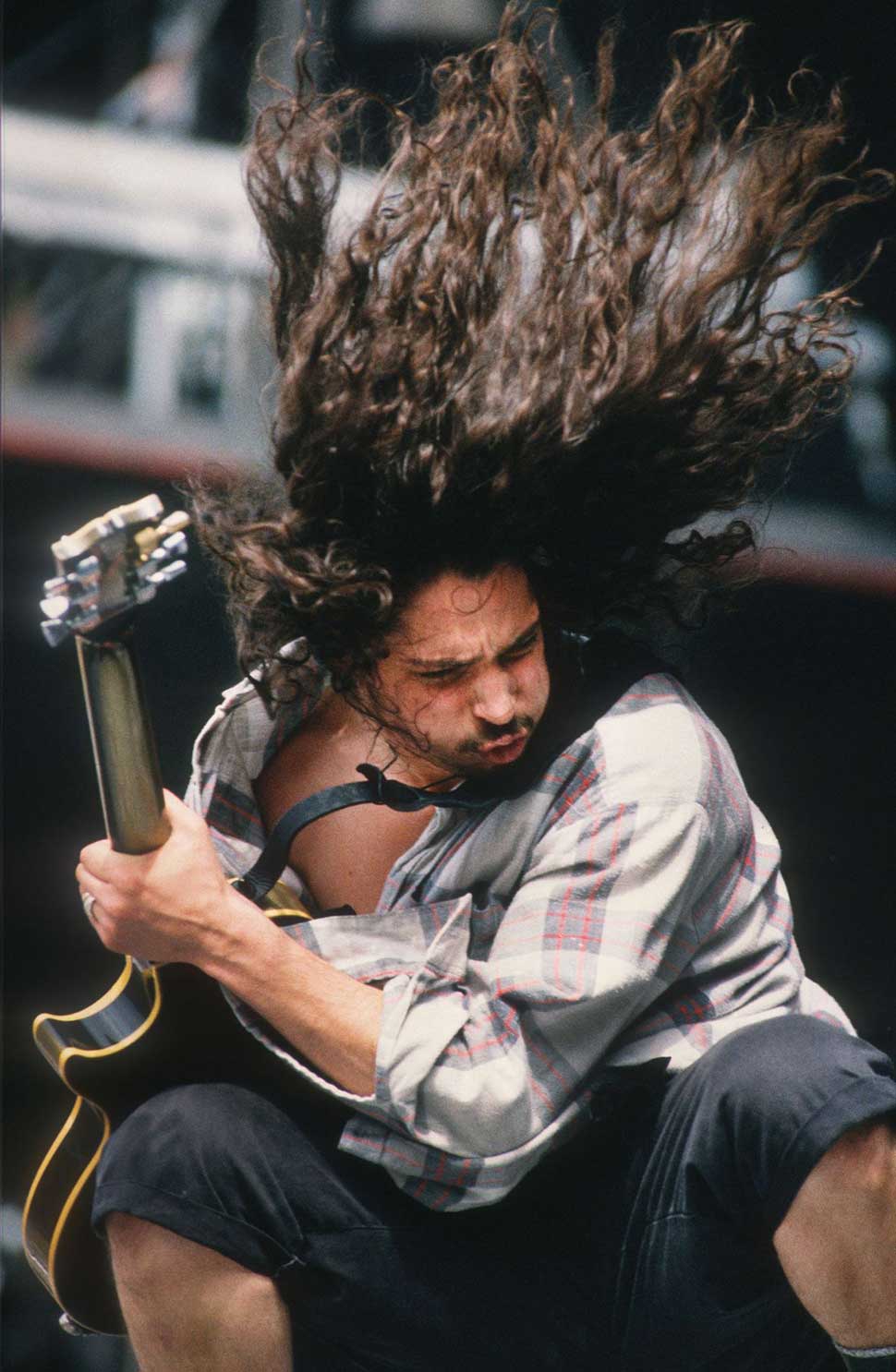
Soundgarden first met at a teen hop in Seattle. Chris Cornell, vocals and naked torso, takes up the story from the depths of a youth hostel bed room in Groningen: “We had been enjoying in a band known as The Shemps, wearing tuxedos,” he remembers. “We threw our guitars down in disgust and give up, as a result of we weren’t expressing ourselves as we wished to. So we shaped a three-piece band the place I performed drums and sang, and Hiro [bass] sang backups and Kim performed guitar and did the doo-wops.
“We began writing jangly, creepy-crawly songs, giving them names like Blood and Open Sesame and Bury My Head In The Sand. We supported Hüsker Dü as a three-piece, blew them away and obtained right into a wrestling match with them afterwards. The drummer sat on us and spilt Rice Krispies in Kim’s beard. All we wished was the gang to cheer and carry us round on their shoulders.”
Ultramega OK was nominated for a Grammy in 1990 – as was its breakthrough follow-up, 1991’s Badmotorfinger. Grunge didn’t break Soundgarden, Soundgarden helped to interrupt grunge. Soundgarden wished to embrace the mainstream. Their sound and look was in every single place in Seattle in these early turbulent years. And, crucially for all that sprawled out of the Pacific Northwest in the course of the begin of the Nineties, Soundgarden had been constructive function fashions.
Their music could have adopted the template of the early Black Sabbath and Led Zeppelin screamers, nevertheless it nonetheless managed to be ingenious and mess with the shape. Typically, it felt the music had extra in widespread with the manic experimentation of (now forgotten) SST labelmates Das Damen and the exhausting, psychedelic rock of Cream than with any of the ‘poodle rockers’ that again then had been in every single place on the metallic scene.
In the identical manner that Nirvana helped revitalise various rock with punk angle and feminist leanings, Soundgarden gave metallic a much-needed overhaul and kicking, bringing it again to the uncooked energy of its origins. It rekindled the thrust of its engines. Unexpectedly, rock music rocked as soon as extra. Jesus Christ Pose is nu metallic a decade forward of schedule (again then it was termed ‘grindcore’), and weirdly sounds proper in place with the music of its time (Huge Black, the God Machine). Not that Soundgarden appreciated being lumped in with Poison or Bon Jovi.
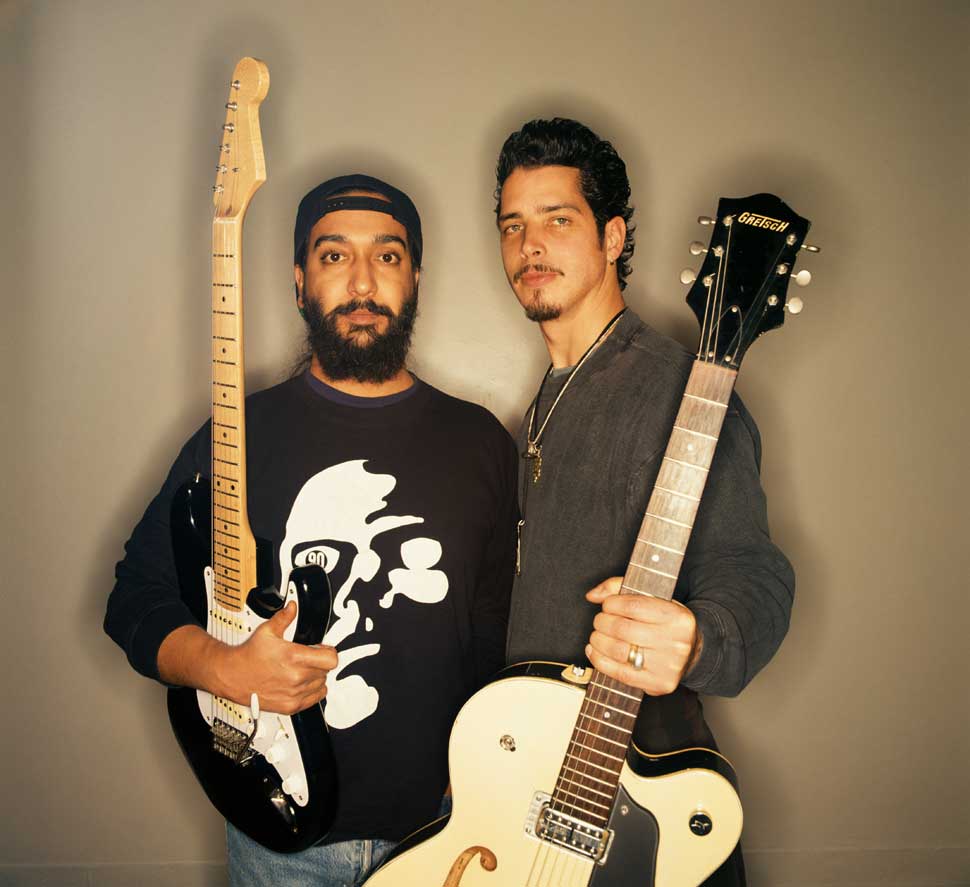
“Once we launched Louder Than Love,” Cornell advised me in a Tokyo lodge room in March 1994, “everybody wished us to be heavy metallic as a result of that’s what was huge – the report firm, the publicists, the heavy metallic magazines particularly, who had been having a reasonably severe time looking for one thing worthy to put in writing about as a result of all of the bands sound precisely the fucking similar, sing about the identical shit and don’t have anything to say. It’s a completely missing style.
“A part of that categorisation was our fault, as a result of Louder Than Love was a metallic report and, being our debut for a serious, was the one which made the impression. Badmotorfinger led away from there, however most likely not sufficient. To us it by no means made any sense, as a result of we knew the place we got here from and the songs we’d write.”
It’s ironic that Chris was speaking that manner, then. Superunknown – Soundgarden’s 1994 album that blew everybody away, and the explanation I used to be speaking to him in Japan – is unadulterated, unrequited, unapologetic metallic. Pure and delightful. Hearken to The Day I Tried To Stay, with its heart-clenching vocal efficiency, and check out telling me that it’s not an equal of Sabbath or Zep. Hearken to the era-defining Black Gap Solar (era-defining, on the time of Cobain’s demise) and check out convincing anybody that this isn’t metallic shot by way of and thru.
The primal blues, moved on by way of distortion and time.
Comprehensible, although, that Cornell and Thayil wished to distance themselves from the crap, the shit that simply will get handed over too many instances. Again then, solely Metallica might equal Soundgarden for emotional vary, and so they fell away quick. (Metallica themselves acknowledge Soundgarden’s standing – guitarist Kirk Hammett advised Rolling Stone journal in 2008 that Enter Sandman would possibly by no means have existed if it hadn’t been for the “huge, heavy riffs” on Louder Than Love.)
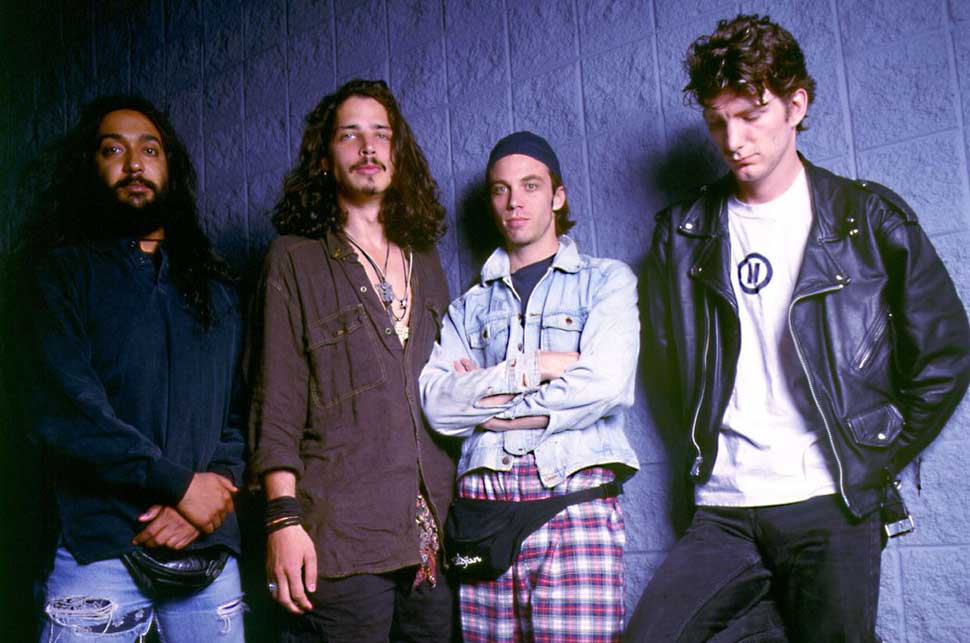
Looking back, maybe it ought to have been apparent that the ultimate days of Soundgarden had been to shortly be upon us. Just one album adopted earlier than the band’s inevitable re-formation in 2010, 1996’s splendidly bleak Down On The Upside. As Cameron termed Superunknown to me in ’94, “It grooves and it rocks and all the things is the place it must be. I can take heed to it. Usually, rock songs are about sure issues – chicks, vehicles and dicks. However the lyrics to Superunknown are very introspective, very darkish. They’re saying an entire completely different factor. Mainly it’s an enormous ‘fuck you’ to the world, a plea to go away us alone!”
Maybe it ought to have been apparent, nevertheless it wasn’t – the band had been nonetheless too busy rocking, and arguing, and preventing, and… as much as mischief. In Nagoya, in entrance of a wildly enthusiastic membership viewers, Cornell stopped the band’s set midway by way of to announce a “actual particular visitor star, all the way in which from England”. The viewers went suitably berserk, anticipating Lemmy or somebody. As an alternative they obtained me.
I need to go away the ultimate phrase to Chris Cornell, from the identical 1994 interview, one thing he stated that all the time caught with me. Fellow songwriter Ben Shepherd was essentially the most visibly depressed, guitarist Kim Thayil essentially the most argumentative, nevertheless it was Cornell who bothered me essentially the most. At all times.
“Fell On Black Days was like this ongoing worry I’ve had for years,” he stated. “It’s a sense that everybody will get. You’re comfortable together with your life, all the things’s going properly, issues are thrilling, when rapidly you realise you’re sad within the excessive, to the purpose of being actually, actually scared. There’s no specific occasion you possibly can pin the sensation right down to, it’s simply that you just realise someday that all the things in your life is fucked!”
He shouts the final phrase.
The unique model of this characteristic first appeared in Basic Rock 238, revealed in June 2017.

